Owning a swimming pool in Australia is a luxury, but enjoying it all year round requires an effective pool heating solution. Whether you are looking to extend your swimming season, raise the water temperature for early morning dips, or simply make your pool more enjoyable, the right heating system can make all the difference. In this guide, we explore how to heat a pool efficiently, cost-effectively, and sustainably. From solar systems to gas heaters and electric heat pumps, this article covers everything pool owners need to make an informed choice.
Why Heating Your Pool Matters
Heating your swimming pool is not just about comfort. It is about getting more use out of your investment, especially during the cooler months. Heated pools offer:
- An extended swimming season
- A more consistent temperature throughout the day
- Enhanced relaxation and therapeutic benefits
- Increased property value and usability
With modern pool heating systems available in Australia, heating your pool has never been more accessible, whether you own an inground pool, spa, or backyard pool.
Types of Pool Heating Systems
When it comes to heating a swimming pool, there are three main pool heating systems:
- Gas pool heaters – known for rapid heating and suitability for cold climates
- Electric heat pumps – highly energy efficient and suitable for most regions
- Solar pool heating systems – environmentally friendly with low running costs
Each system offers different advantages based on your climate, pool size, and usage habits.
Gas Pool Heaters: Quick but Costly
Gas pool heaters use natural gas or propane to heat pool water quickly. They are ideal for pool owners who use their pool occasionally and want to heat it only when needed.
Additionally, gas pool heaters can heat spas to higher temperatures quickly, catering to the demands of quick heating needs.
Pros
- Fastest way to heat pool or spa water
- Works efficiently in any climate, regardless of outside temperature
- Can increase pool temperature by a few degrees in just a few hours
Cons
- Higher installation and running costs
- Dependent on fluctuating gas prices
- Less energy efficient than other pool heaters
A typical gas pool heater operates at an efficiency of 85 to 95 percent, generating 85 to 95 thermal units for every 100 units of energy used. However, this performance comes at a price. Gas heating systems often lead to higher utility bills and are best suited for short-term or rapid heating needs rather than daily use. Additionally, gas heaters are more expensive to operate than electric heat pumps or solar heating systems. Gas pool heaters do not rely on outside temperatures and can function effectively throughout the year, unlike solar heating.
Electric Heat Pumps: Efficient and Reliable
Electric heat pumps are considered one of the most energy efficient options for heating a pool. Instead of generating heat, they extract warm air from the atmosphere and transfer it to the pool water using a heat exchanger. Electric heat pumps are more energy-efficient than gas heaters.
Key Benefits
- Lower operating costs compared to gas heating
- Can deliver between 3 to 7 units of heat for every unit of electricity used
- Effective in ambient temperatures as low as 7 degrees Celsius
- Longer lifespan of 10 to 20 years
- Quiet operation with inverter models
- Heat pumps usually have a lifespan of 10–20 years, longer than gas or solar heaters. Inverter heat pumps operate more quietly than standard heat pumps and can adjust their speed for efficiency.
Heat pumps are perfect for pool owners seeking year round comfort without excessive energy consumption. Their efficiency is measured by the Coefficient of Performance (COP), with higher values indicating better energy use. Inverter heat pumps are especially valuable for maintaining a consistent temperature while minimising energy bills. The efficiency of electric heaters is measured by the Coefficient of Performance (COP), with higher values indicating better efficiency. Electric heat pumps can raise pool water temperatures by 2-4 degrees Fahrenheit daily.
Solar Pool Heating: Sustainable and Low-Cost
Solar pool heating systems are popular in Australia thanks to the abundance of sunlight. These systems use solar collectors to absorb heat from the sun and transfer it to the pool water, providing a renewable, low-cost way to warm your pool. The cost of running solar pool heating systems is significantly lower than other heating methods, as they mostly rely on free solar energy. Solar pool heaters can extend the swimming season by up to six months in sunny climates.
Advantages
- Extremely low operational costs
- Environmentally friendly with zero emissions
- Can extend your swimming season by up to six months
- Solar pool covers can increase pool temperature by up to 8 degrees Celsius
Limitations
- Performance varies depending on climate and sunlight exposure
- Not ideal for colder regions or shaded pools
While solar heating systems offer one of the most energy efficient options, they may not be suitable for pool owners in colder climates who want to maintain a consistent temperature year round. However, when combined with a backup system like a heat pump, solar becomes a powerful hybrid heating solution.
Using to Pool Covers Retain Heat
Pool covers are one of the simplest and most effective ways to retain heat in your swimming pool. Whether used with solar, electric, or gas heating systems, a cover significantly reduces heat loss and evaporation.
How Pool Covers Help
- Reduce water loss due to evaporation by over 10,000 litres per month
- Retain heat overnight and during cool weather
- Decrease heating requirements by limiting heat loss
- Solar blankets can warm pool water by up to 8 degrees Celsius
- Lower maintenance costs by keeping debris out
- Pool covers help keep maintenance costs down. Solar pool covers can warm up your pool by up to 8˚C on sunny days.
For pool owners looking to maximise the efficiency of their heating system, using a pool blanket or solar pool cover is a smart and cost-effective choice.
Factors to Consider When Choosing a Pool Heating System
Selecting the right pool heating system involves more than just upfront costs. Consider the following:
- Climate – warmer areas benefit more from solar; cooler areas may need gas or heat pumps
- Pool size – larger pools require more heating capacity
- Desired temperature – higher goals need more powerful systems
- Energy efficiency – COP, energy bills, and environmental impact
- Running costs – factor in annual energy consumption and maintenance
- Installation space – roof space for solar collectors, area for heat pumps or gas units
Every backyard pool is different. A system that works for one homeowner may not suit another. It is essential to evaluate your lifestyle, pool usage, and regional weather patterns.
How to Maximise Pool Heating Efficiency
To heat your pool efficiently and economically, consider these tips:
- Use a solar pool cover consistently to reduce heat loss
- Combine solar heating with a heat pump for hybrid performance
- Schedule heating during off-peak hours if using electric systems
- Clean your pool filter regularly and maintain optimal water chemistry
- Position solar panels or collectors for maximum sunlight exposure
- Keep the pool pump and heating system well maintained
Small habits, like using a pool blanket or setting a consistent temperature, can make a big difference in energy bills and heat retention.
FAQs About Pool Heating
What is the best way to heat a pool in a cold climate?
Gas pool heaters or heat pumps designed for low temperatures are the most effective. They can maintain a consistent temperature even when air temperature drops.
How can I heat my pool without increasing energy bills too much?
Electric heat pumps and solar pool heating systems are the most energy efficient options. Pairing them with a solar cover can improve efficiency further.
Is solar pool heating enough in winter?
In warmer regions, yes. In colder climates, a supplementary system may be needed.
How long does it take to heat a pool?
It depends on the system. Gas heaters can warm your pool within a few hours. Heat pumps take longer but are more cost-effective over time.
Do pool covers really help?
Yes. Pool covers retain heat, reduce evaporation, and help maintain a stable temperature. They also lower water and chemical usage.
Conclusion
There is no one-size-fits-all answer to how to heat your pool. The best pool heating option depends on your climate, pool usage, and budget. Gas heaters offer speed, heat pumps deliver efficiency, and solar systems provide sustainability. To maximise your pool’s warmth and enjoyment, choose a system tailored to your needs and support it with a high quality pool cover.
For expert advice, installation, and maintenance of pool heating system in Perth, reach out to the team at 1 Pool Care. We will help you heat your pool efficiently so you can enjoy crystal clear, warm water all year round.

With over 20 years of industry experience, Adrian Mole is the founder of 1 Pool Care, a leading mobile pool service in Perth. Known for his expert knowledge and reliable service, Adrian delivers professional pool cleaning, equipment repairs, and water balancing across the metro area. Backed by SPASA accreditation, he’s committed to quality, convenience, and customer satisfaction.


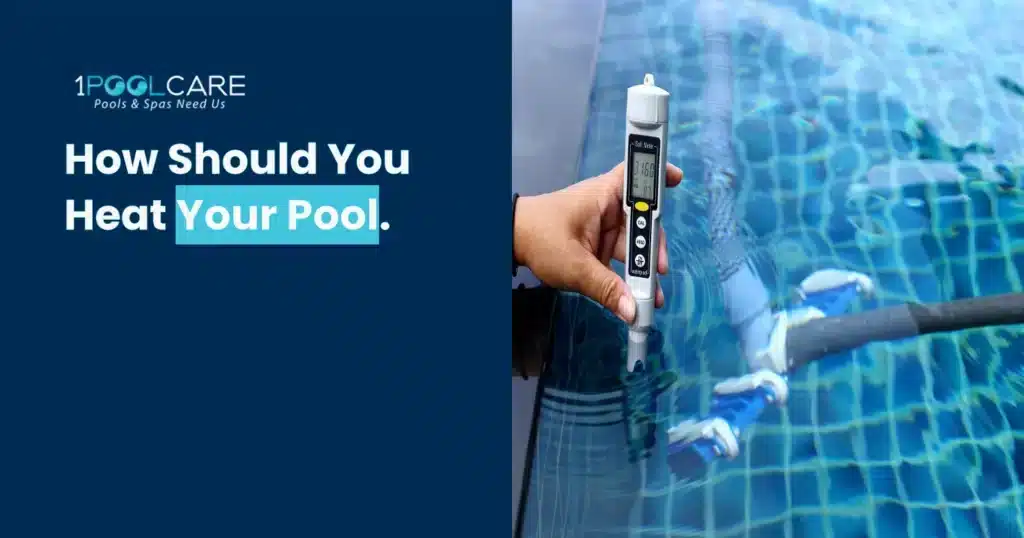
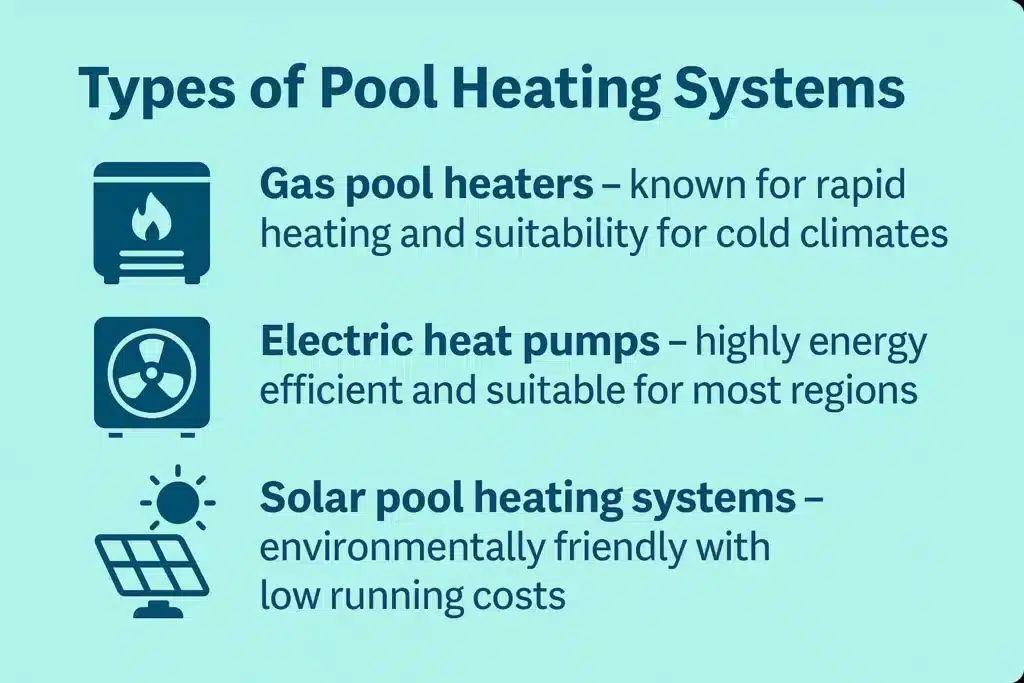
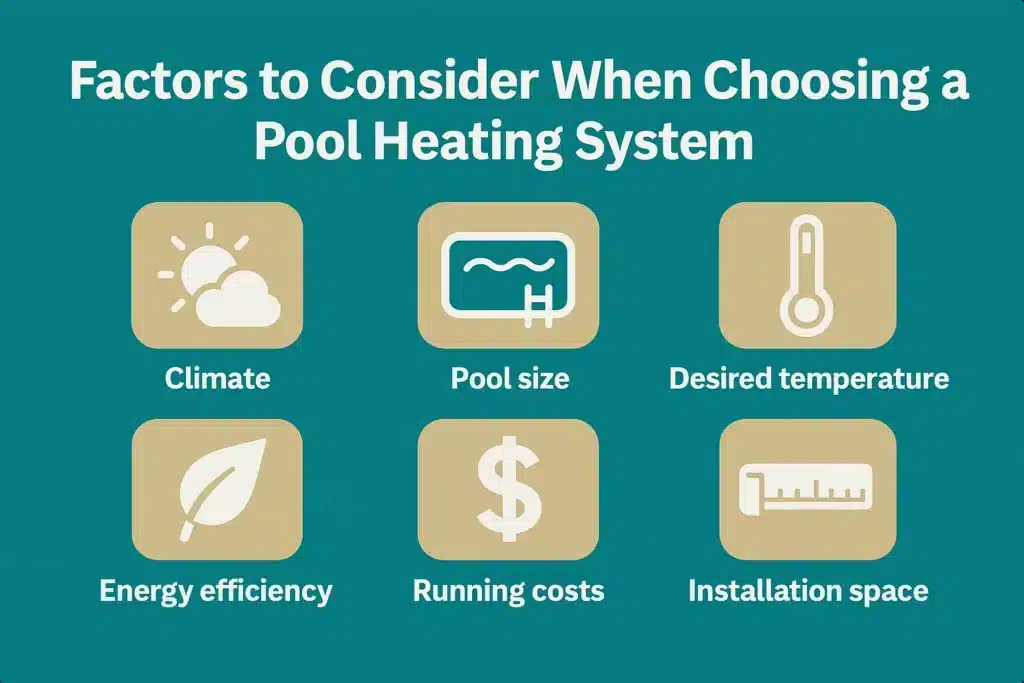

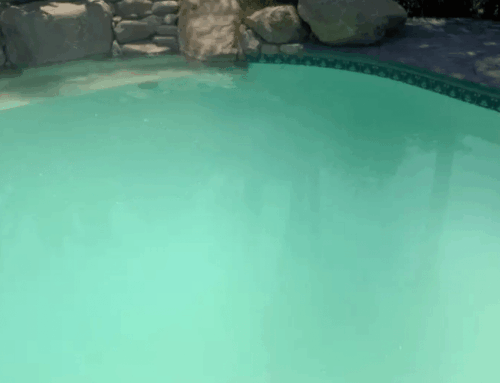
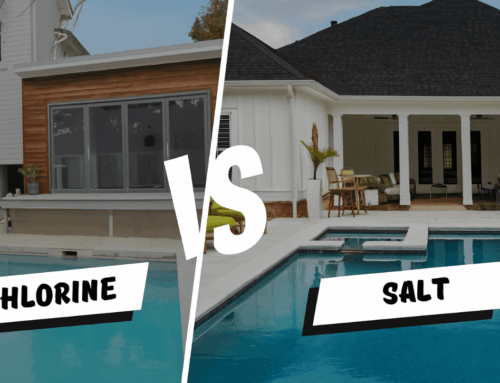
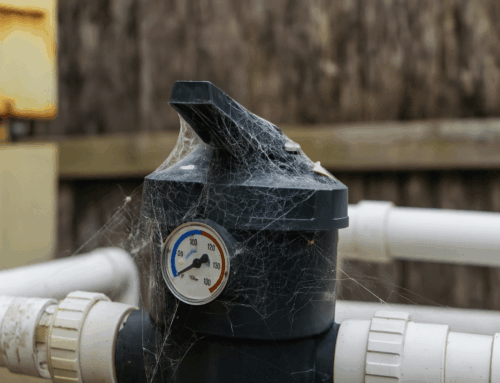





Social Media